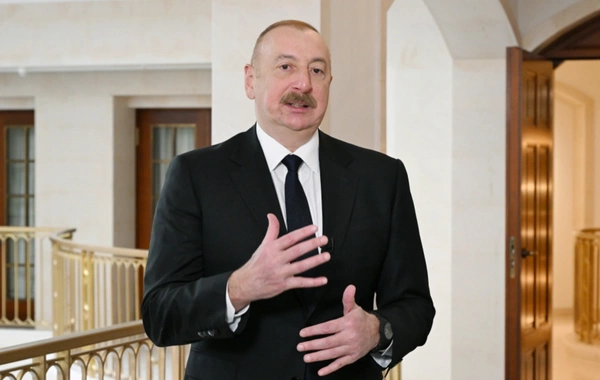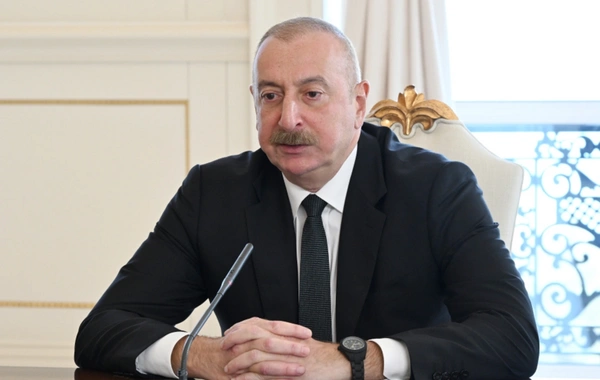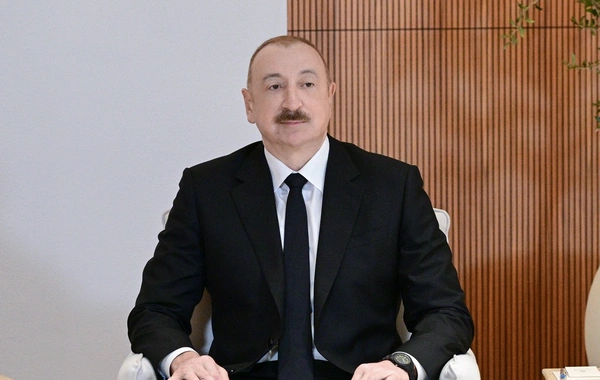The Great Romantic and Rebellious Spirit: Today Marks the Birthday of Husein Javid## Detected language: Azerbaijani

Today is the birthday of one of the brightest representatives of romanticism in Azerbaijani literature, the great poet and playwright Huseyn Javid.
BAKU.WS reminds that Huseyn Javid (birth name Huseyn Abdullah oglu Rasizade) was born on October 24, 1882 in Nakhchivan city, where his family moved from the village of Shakhtakhty. His father was a clergyman. He received his primary education at a religious school (mollakhana), and then entered the school of Muhammad Tagi Sidgi "Mektebi-terbiye" in his hometown. From 1899-1903, he continued his education at the "Talibiyya" madrasah in Tabriz (South Azerbaijan). He graduated from the Faculty of Literature at Istanbul University, taught in Nakhchivan, Ganja, and Tbilisi, and from 1915 - in Baku.
Huseyn Javid is one of the masters who developed the best traditions of classical Azerbaijani literature. He was one of the founders of Azerbaijani progressive romanticism of the 20th century.
H. Javid's work is distinguished by a variety of genres and forms. He is the author of lyrical poems, lyrical-epic and epic poems, and the first verse tragedies and dramas in Azerbaijani literature. His first collection of poems entitled "Keçmiş günlər" ("Past Days") was published in 1913.
Huseyn Javid is better known as a playwright. His philosophical and historical tragedies, family dramas in terms of innovative style and manner of writing represented a new stage in Azerbaijani dramaturgy, characterized as "Javid's theater," which had a strong influence on the development of national theatrical culture. His dramaturgy reflected universal human problems of that time, which had great socio-political and cultural significance.
In his work "Sheikh Sanan" (1914), the first verse tragedy in Azerbaijani literature, he expressed the idea of a universal religion to unite peoples. During this period, Huseyn Javid gradually came to the thought that "rights are not given, they are conquered."
In the tragedy "Iblis" (Devil) (1918), which occupies a special place in his work, all reactionary forces of that time - supporters of the philosophy "man is a wolf to man," circles of "cultural savages of the 20th century" - were generalized in the image of the Devil, and wars of conquest were cursed.
In 1926, Huseyn Javid went to Germany for treatment. After living in Berlin for seven months, he returned with a number of political-lyrical and lyrical-epic poems reflecting the spiritual struggles of the intelligentsia.
In the 1920s-30s, Javid wrote a series of historical dramas. The historical dramas "Sayavush" (1933), "Khayyam" (1935), written after his works "Prophet" (1922) and "Lame Teymur" (1925), were a turning point in his views on history and historical figures.
During the dark period of totalitarianism in the Soviet Union, Huseyn Javid considered it unacceptable to write about the "achievements" of socialism and firmly refused to praise Stalin and the rulers of Azerbaijan. This is why this brave man was exiled to Magadan and died on December 5, 1941 in Zaplag (Western Corrective Labor Camp), Shevchenko village in the Taishet district of Irkutsk region.
In 1981, a house-museum of the great playwright was established in Nakhchivan.
It should be noted that Huseyn Javid's 100th anniversary was widely celebrated in our country.
On the eve of the anniversary, at the initiative of national leader Heydar Aliyev, the writer's remains were brought from the Irkutsk region to Nakhchivan and buried near his house-museum. A magnificent mausoleum was erected over Huseyn Javid's grave. One of the avenues in the Yasamal district of Baku is named after him.
Similar News
In Gabala, the opening of the II International Music Festival "Winter Fairy Tale" took place
On February 6, the grand opening ceremony of the II Gabala International Music Festival "Winter Fairy Tale" was held, organized by the Uzeyir Hajibeyli Baku Mus...




 Azərbaycanca
Azərbaycanca  По-русски
По-русски  English
English 






